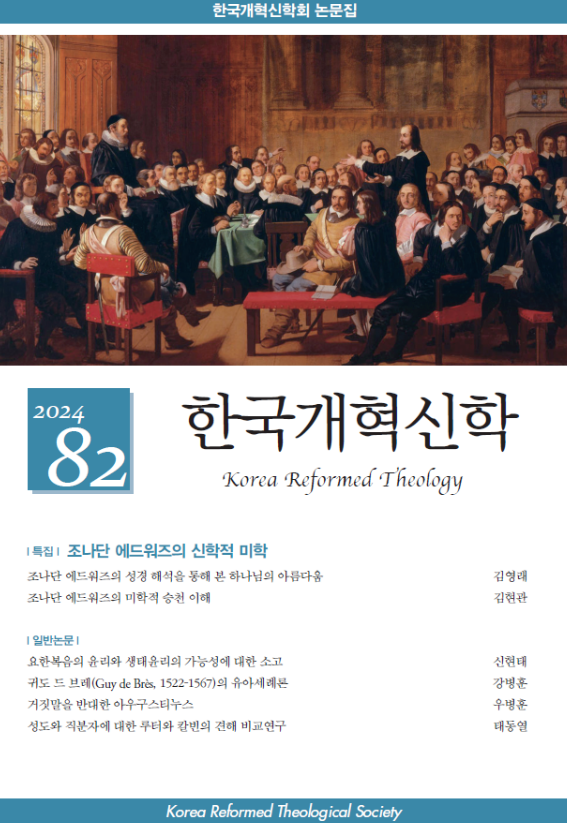본 논문은 엑서터 프로젝트의 생태성서해석학을 착용하여 요한복음의 윤리와 생태윤리의 가능성을 논하였다. 암묵적인 요한복음의 윤리는 요한복음의 내러티브를 통해 찾을 수 있으며, 휘포데이그마(ὑπόδειγμα), 포이에오(ποιέω), 카토스(καθώς)의 용례는 요한복음의 선교적 사랑윤리를 보여준다. 그리고 싸륵스(σάρξ)와 판타(πάντα), 코스모스(κόσμος)의 용례는 창조 세계의 선함을 보여줄 뿐만 아니라 이들을 구원의 대상으로 제시한다. 또한 말씀의 성육신은 예수가 인간으로 오신 것 뿐만 아니라 생명 공동체의 일원으로서 육체화된 사건을 의미한다. 이러한 사항을 고려했을 때 요한복음은 생태적 윤리를 암시적으로 내포하고 있을 가능성이 있다고 여겨진다.
This paper discusses the possibility of ethics and ecological ethics in the Gospel of John by applying the eco-biblical hermeneutics of the Exeter Project. Considering the narrative of the Gospel of John, implicit ethics can be found within it. Examples such as hypodeigma(ὑπόδειγμα), poieo(ποιέω), and kathōs(καθώς) demonstrate the missionary love ethics of the Gospel of John. Moreover, examples like sarx(σάρξ), panta(πάντα), and kosmos(κόσμος) not only illustrate the goodness of the created world but also present it as the object of salvation. Furthermore, the incarnation of the Word signifies not only the coming of Jesus as a human but also the embodiment as a member of the biotic community. Taking these aspects into consideration, it is considered that the Gospel of John implicitly encompasses ecological ethics.







